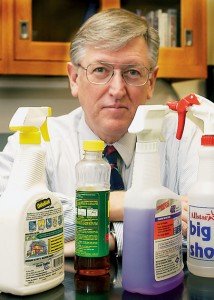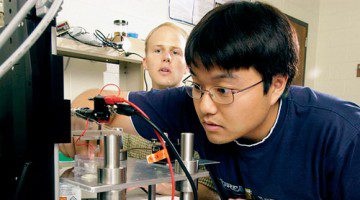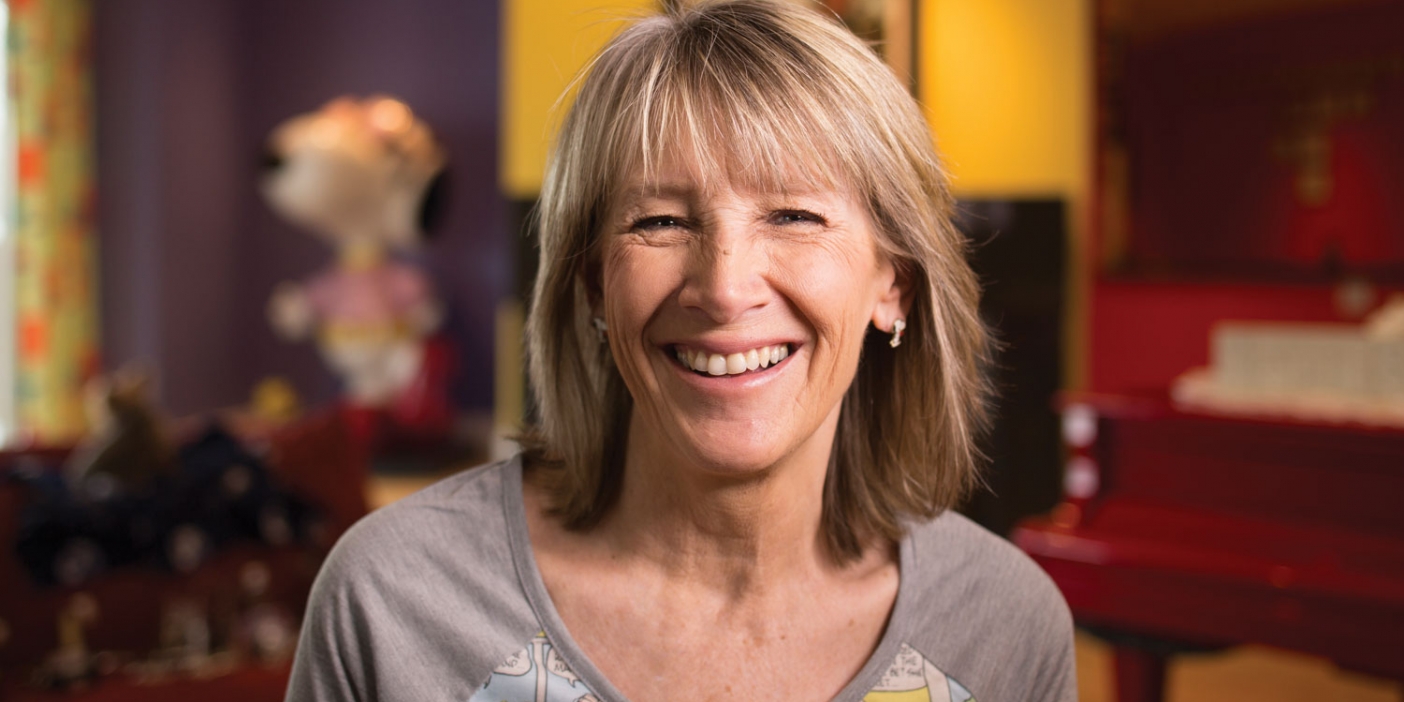
Eugene C. Cole | Photo by Mark Philbrick
Worried that your antibacterial cleaning products may be creating highly resistant “super germs”? Don’t be, says BYU researcher Eugene C. Cole.
In October Cole, a health science professor, published the results of a study undertaken to determine whether use of antibacterial cleaning products was contributing to resistant strains of bacteria, a subject that has received media attention in recent years. In the study, published in the Journal of Applied Microbiology, Cole found that there is no relationship between the use of antibacterial cleaning products and resistance to antibiotics or antibacterial products.
Cole explains why his research has attracted attention from national media outlets, including Newsweek. “It’s a practical, applied research study that fills a knowledge gap, and it’s been on people’s minds for a number of years now.
“During the course of the two-year study, Cole and his research partners took samples from kitchens and bathrooms and from the hands and mouths of 60 families in three locations in the United States and the United Kingdom, half of whom used anti-bacterial products.
The study showed that homes that used antibacterial products tended to have fewer disease-causing bacteria, although that could be a result of a more conscious awareness of health and more careful cleaning, Cole says.
Misuse and overuse of prescription antibiotic medications are the main causes of antibiotic-resistant bacteria. Now, with cleaning products eliminated as potential causes, researchers can focus on these known causes of antibiotic resistance.
Cole has made a career of solving public health problems. Cole came to BYU in 2002 after working for various government, industry, academic, and nonprofit organizations because he felt it would give him a better chance to conduct and promote public-health research.
“I was more interested in promoting the type of health research that I do than dealing with revenues and profit margins and things like that,” he says.
Cole’s previous projects include research into bioterrorism preparedness, medical waste management in developing countries, and reduction of asthma and allergy triggers in indoor environments. His goal, he says, is to help people improve their health, especially through simple means, like home hygiene.
“I focus on practical solutions to important public health problems that are low-cost to no-cost,” he says.
Feedback: Send comments on this article to worksandprogress@byu.edu









